Residents of the Thai province of Ubon Ratchathani were already on high alert after a Cambodian soldier was killed during a brief firefight on the two countries’ disputed border in May. But when heavier fighting broke out on July 24, all preparation went out the window as panic took hold. Traffic backed up, gas stations closed, and people struggled to connect to the internet due to network congestion.
That day, Bee, a district health official, drove against the stream of traffic—seemingly the only car speeding toward the explosions—toward her home to pick up a prepacked bag of medical supplies. “I have many roles. I’m a mom, a doctor, and a member of the public. Like everyone else, I was really stressed, but I also have to take care of people,” said Bee, who asked to be identified by a nickname because she was not authorized to speak to the press. “It was like the apocalypse.”
While the Cambodian military fired rockets and artillery at Thai residential areas in late July, killing 14 civilians, Cambodian protesters marched in the streets, wrapped in national flags and accusing Thailand of staging an invasion. The reality is that authorities from both countries have helped escalate the crisis, leveraging historical grievances to turn their citizens against one another.
“This is not a war between countries. It’s a war between individuals,” said Waraluck, a day care center worker, referring to authorities in the two countries. (Waraluck asked to be identified by her first name due to the sensitivity of the issue.) Packing her bag at an evacuation center in Surin province, she added: “They have a war together, and we have nothing to do with it, but now we have to run.”
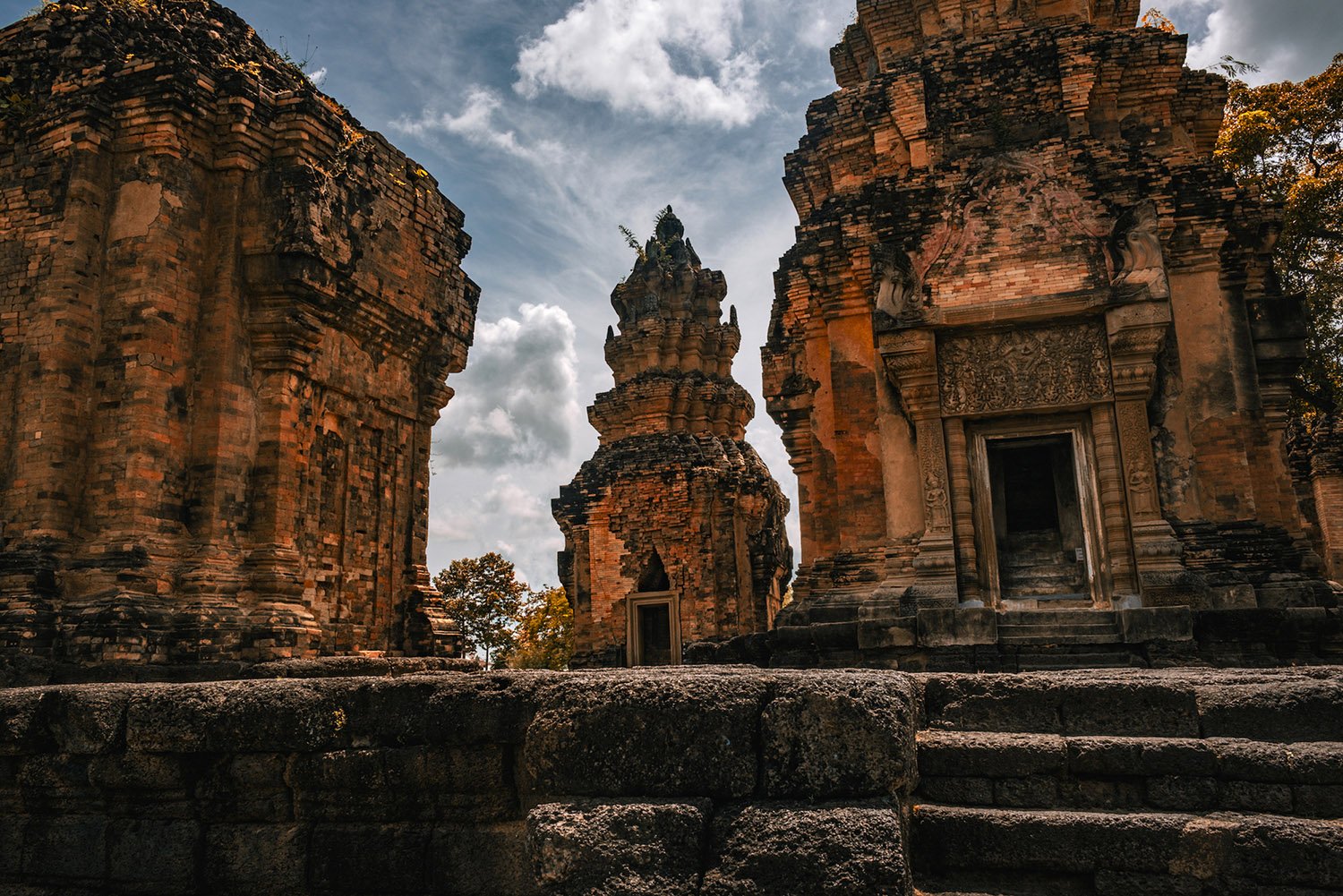
It remains unclear who fired first during the inciting incidents on the Thai-Cambodian border in both May and July, but tensions initially escalated in February, when Cambodian civilians escorted by soldiers sang a nationalist anthem at a disputed ancient temple that is jointly administered by both militaries. In Cambodia, where even a minor labor protest is treated as a national security threat, it’s implausible that this happened without official approval.
Though Cambodians have marched under banners proclaiming “Cambodia needs peace,” most haven’t had a real say in the country’s policies during their lifetimes. Former Prime Minister Hun Sen—a former Khmer Rouge battalion commander—ruled the country with an iron fist from 1985 to 2023, when he passed power to his son Hun Manet. The latest border crisis has revealed the extent to which the longtime leader still calls the shots.
After the first firefight in May, then-Thai Prime Minister Paetongtarn Shinawatra called Hun Sen—a close friend of her father, former Prime Minister Thaksin Shinawatra. Referring to Hun Sen as “uncle,” Paetongtarn offered to do whatever he wanted to defuse the situation. Instead, Hun Sen leaked the phone call—humiliating the Thai leader, who was seen as overly deferential, and leading to her eventual removal from office.
On Friday, the Thai parliament selected a new prime minister, Anutin Charnvirakul, in another blow to the Shinawatra family. Thaksin abruptly left Thailand a day earlier, seemingly sending himself back into exile before he could face a ruling in a court case that could lead to jail time.
Following reports of localized small-arms fire on the border on July 24, Cambodia fired on civilian homes, transforming a contained border clash into an all-out conflict. Thailand then launched airstrikes and artillery along the border, some of which also killed Cambodian civilians. Official sources put the Thai death toll at 15 soldiers and 14 civilians after five days of fighting. Cambodian figures were harder to come by, but social media posts suggested that at least 23 soldiers were killed; initial reports claimed at least eight civilian deaths.
Some Cambodians argue that it makes little sense to provoke a more powerful neighbor, but what is good for Hun Sen isn’t always good for Cambodia. Analysts have theorized that Hun Sen escalated the crisis to boost popular legitimacy for Hun Manet. If that was the plan, it has gone off the rails, as Hun Sen is now in the spotlight.
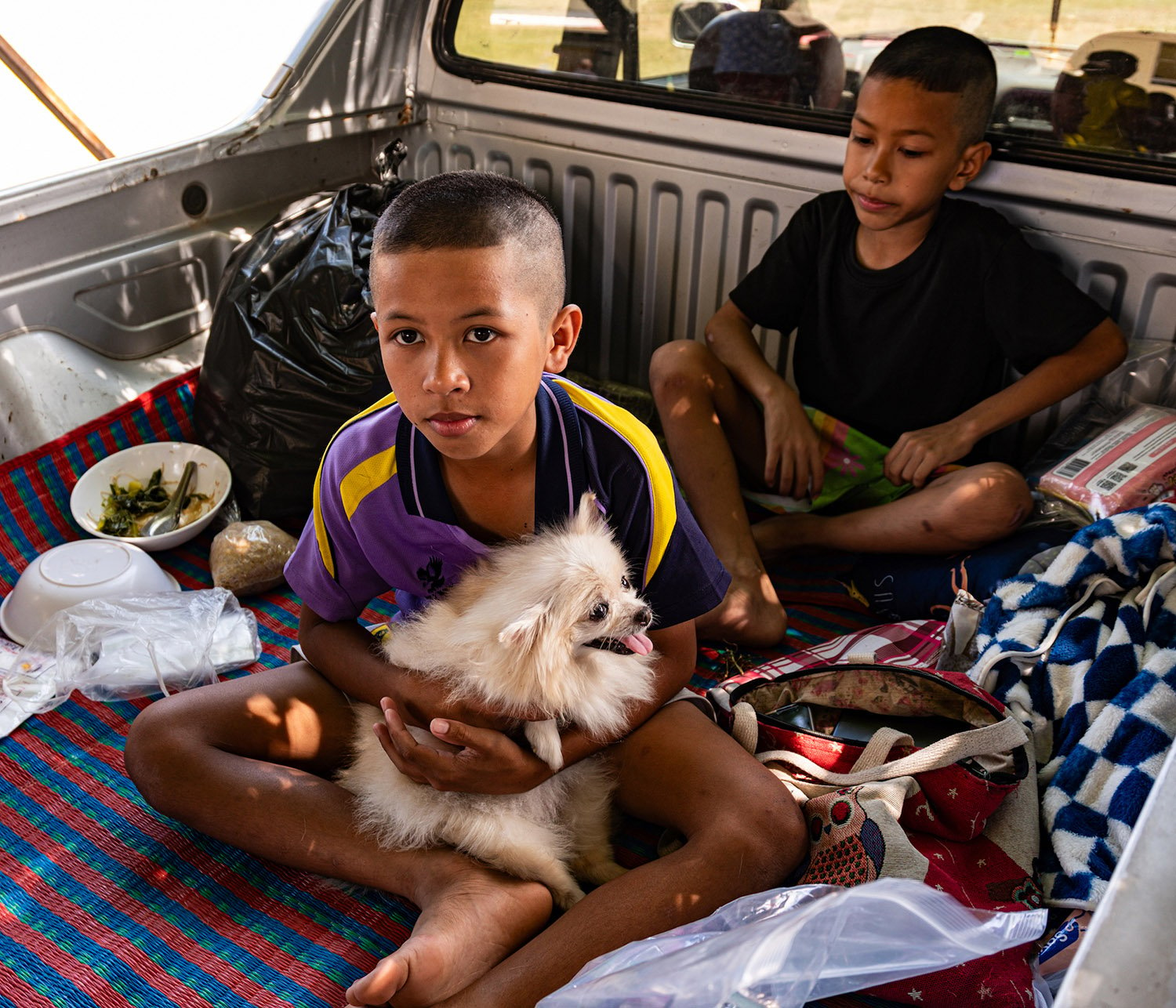
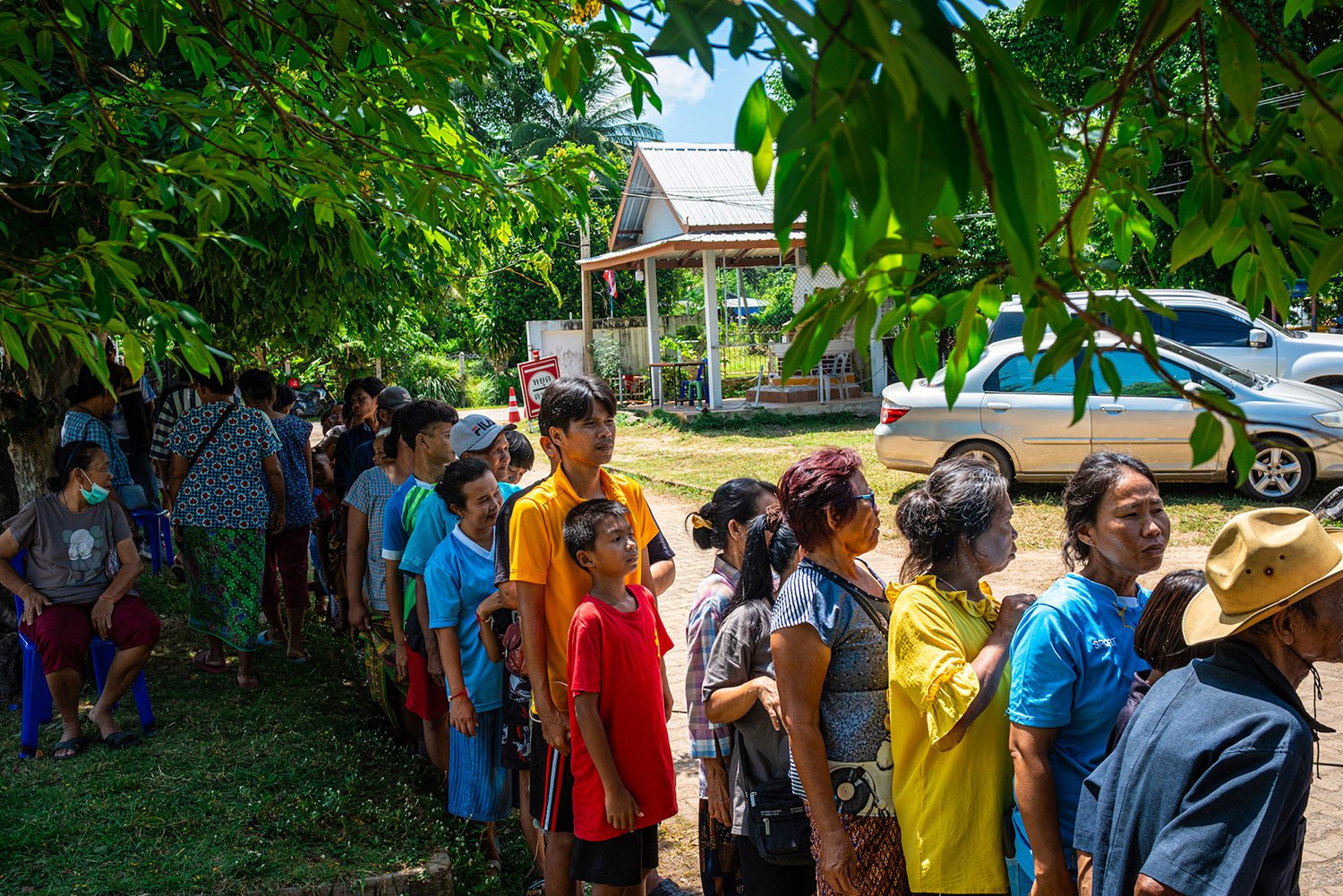
Others suggested that the conflict is linked to the multibillion-dollar cyberscam industry run by Chinese criminal syndicates that have set up shop in Cambodia, including along the border with Thailand, some with links to Hun Sen’s family or other political elites. Thailand indicated in February that it was getting more serious about cross-border crackdowns, which it escalated further after the clashes in May, while also pushing a casino legalization bill that could siphon dark money away from Cambodia. (The draft law was shelved in July.)
“To me, it seems as though Hun Sen became bitter with Thaksin about various issues,” Paul Chambers, a visiting fellow at the ISEAS-Yusof Ishak Institute in Singapore, wrote in an email. “Including Thaksin’s joining a coalition with right-wing parties; Thaksin’s support for legalizing casinos in Thailand; and Thaksin’s support for cleaning out scam centers on the Thai-Cambodian border.”
Thailand is hardly blameless: It has clear, although limited, territorial ambitions. Despite an international court ruling that a sliver of land along a cliff is Cambodian territory, Thailand has long argued that the edge of the cliff is the more obvious border. Though the ancient Angkorian temples in this disputed area provide a convenient nationalist rallying cry for both countries, the cliff itself would give Thailand the high ground in any future dispute.
Since the two countries agreed to a cease-fire on July 28, Thailand has arguably been the more provocative side. The regional military commander reaffirmed plans to seize one ancient temple, which would almost certainly reignite fighting. Thailand has also refused to return 18 Cambodians taken prisoner just as the cease-fire went into effect, at one point claiming that they were being held on immigration violations.
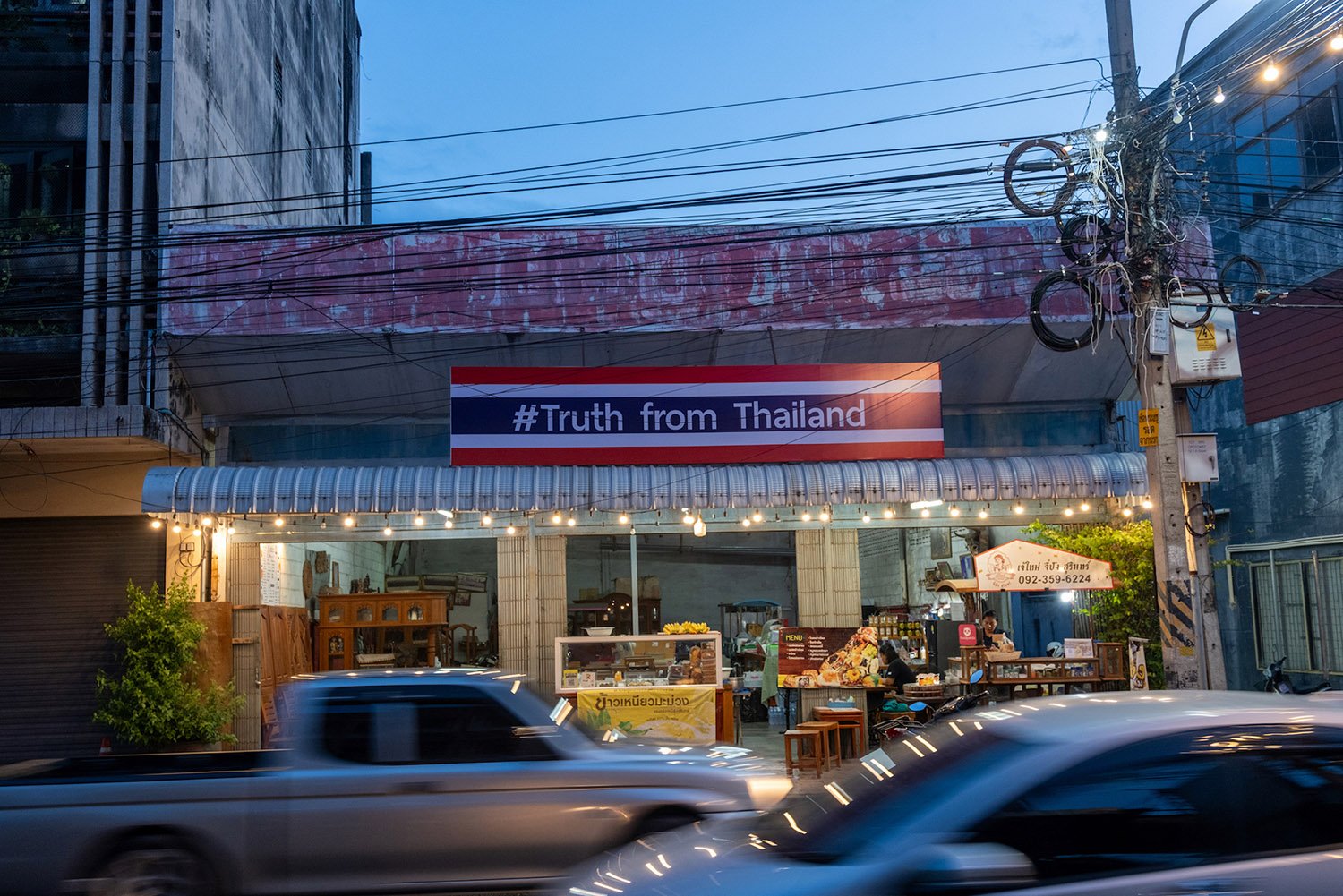
Nationalist sentiment has taken hold in both countries, although the reaction in Thailand has been more complicated. In Surin, Thai flags draped many shops, some of which displayed slogans such as “#TruthFromThailand,” a reference to online flame wars about who started the clashes. But outside the border region, there was little sign of the conflict.
Thai activists appeared more aware that citizens of both countries were being manipulated for political reasons—or more willing to say so publicly compared with those in Cambodia. On July 27, the Thai chapter of the Milk Tea Alliance, a pan-Asian pro-democracy movement, released a statement to this effect: “We are told different truths. Both Thais and Cambodians are trapped in an information war waged by their own states.”
Thais have reason to be wary of their country’s military. In 2006, the generals overthrew Thaksin in a coup; in 2023, they blocked the progressive Move Forward Party from forming a government after it won the most parliamentary seats. Afterward, Thaksin’s Pheu Thai Party formed an unlikely coalition with conservative and pro-military parties, the largest of which left the government hanging by a thread when it quit during the border crisis.
But even Thailand’s pro-democracy movement has been caught flatfooted by the recent border hostilities. Progressive leader Natthaphong Ruengpanyawut said his People’s Party, the successor to Move Forward, supports the military’s role in defending the country’s sovereignty but still wants to limit its involvement in politics.
However, the Thai military seems to be using the border crisis to enhance its political power. “Because of the July 2025 Thai-Cambodian crisis, the Thai military has much more independence from the civilian Thai government,” Chambers wrote. “In post-crisis Thailand, there is no civilian control over the military, a situation which allows the Thai armed forces enormous authority over (and ability to adventure across) civilian affairs.”
Thai progressives are also trying to take advantage of the disarray, telling both Pheu Thai and the conservatives that they will support their efforts to form a new government—if they pledge to hold a new election in the next four months, which the progressives seem confident of winning. Anutin, a conservative politician, agreed to this timeline before being picked to lead the minority government.
-
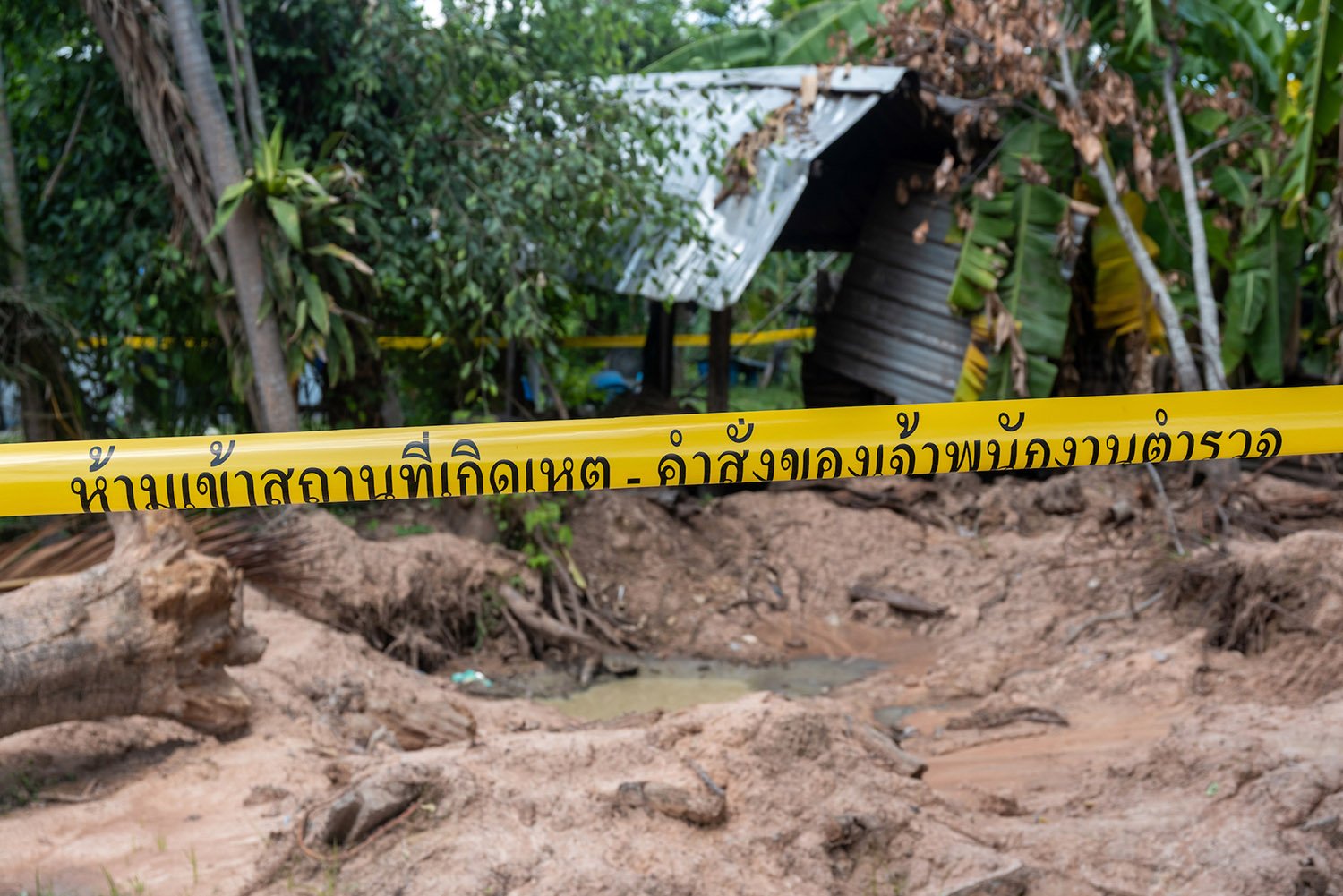
Yellow tape marks off a muddy crater with a fallen tree and damaged metal roof.
-
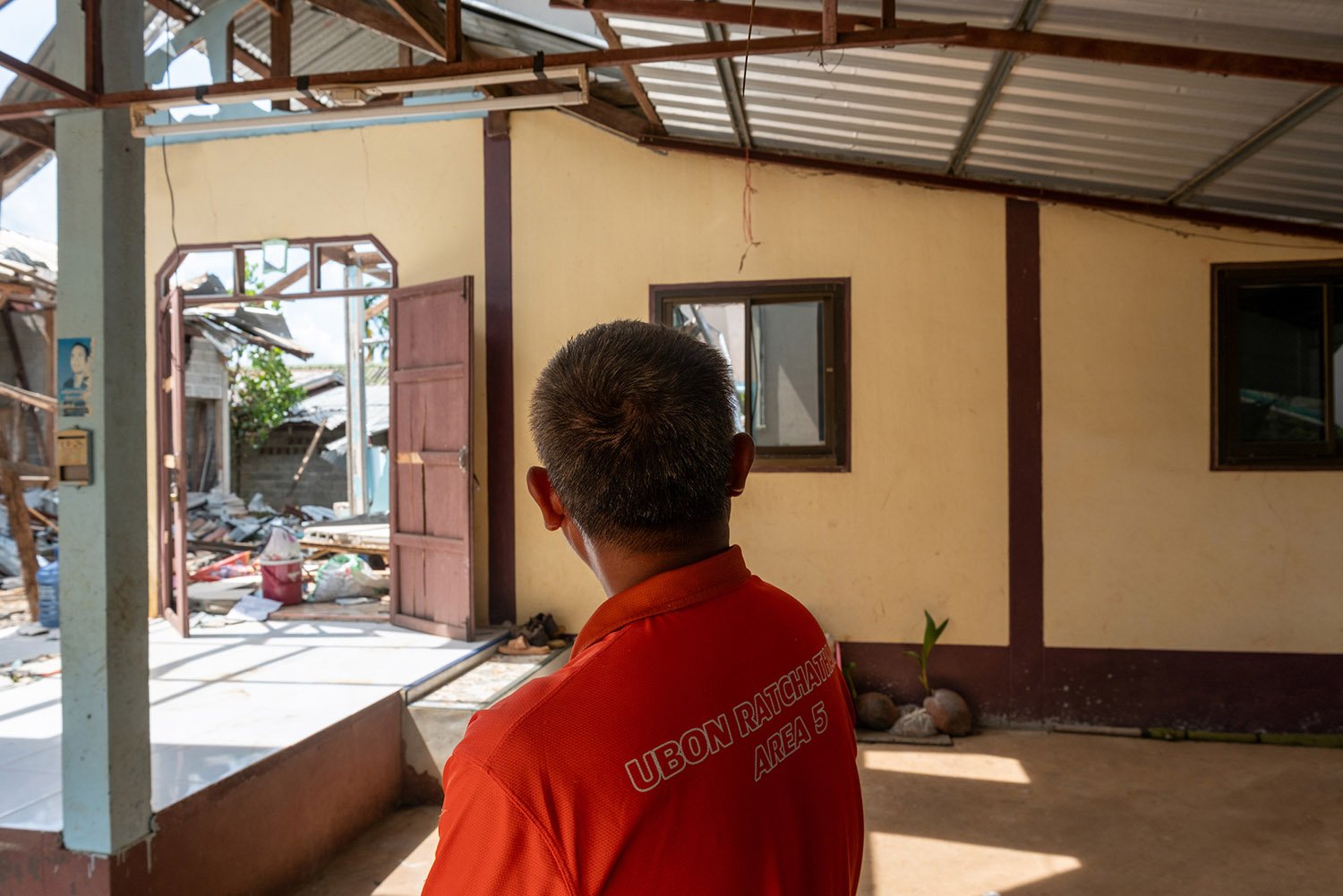
A man is seen from behind looking toward the rubble and open wall of a damaged house.
Last month, thousands of Thais returned home following the unconditional cease-fire with Cambodia. Caravans of vehicles ferried families down the main highway in Surin back to the border zone, while local authorities handed out a last round of donated supplies to civilians who had been sleeping in pagodas and schools for weeks. One man waved over a truck loaded with dirt to fill in an artillery crater next to his noodle shop.
Cambodia’s attacks on civilian infrastructure have ruptured trust in the area. Suwannee Prommana spoke above the rumble of an excavator clearing the vacant lot where her wooden house once stood. Her parents had scraped together money to build the house after years of toiling on farms, only for it to burn down from Cambodian rocket fire just after they evacuated on July 25.
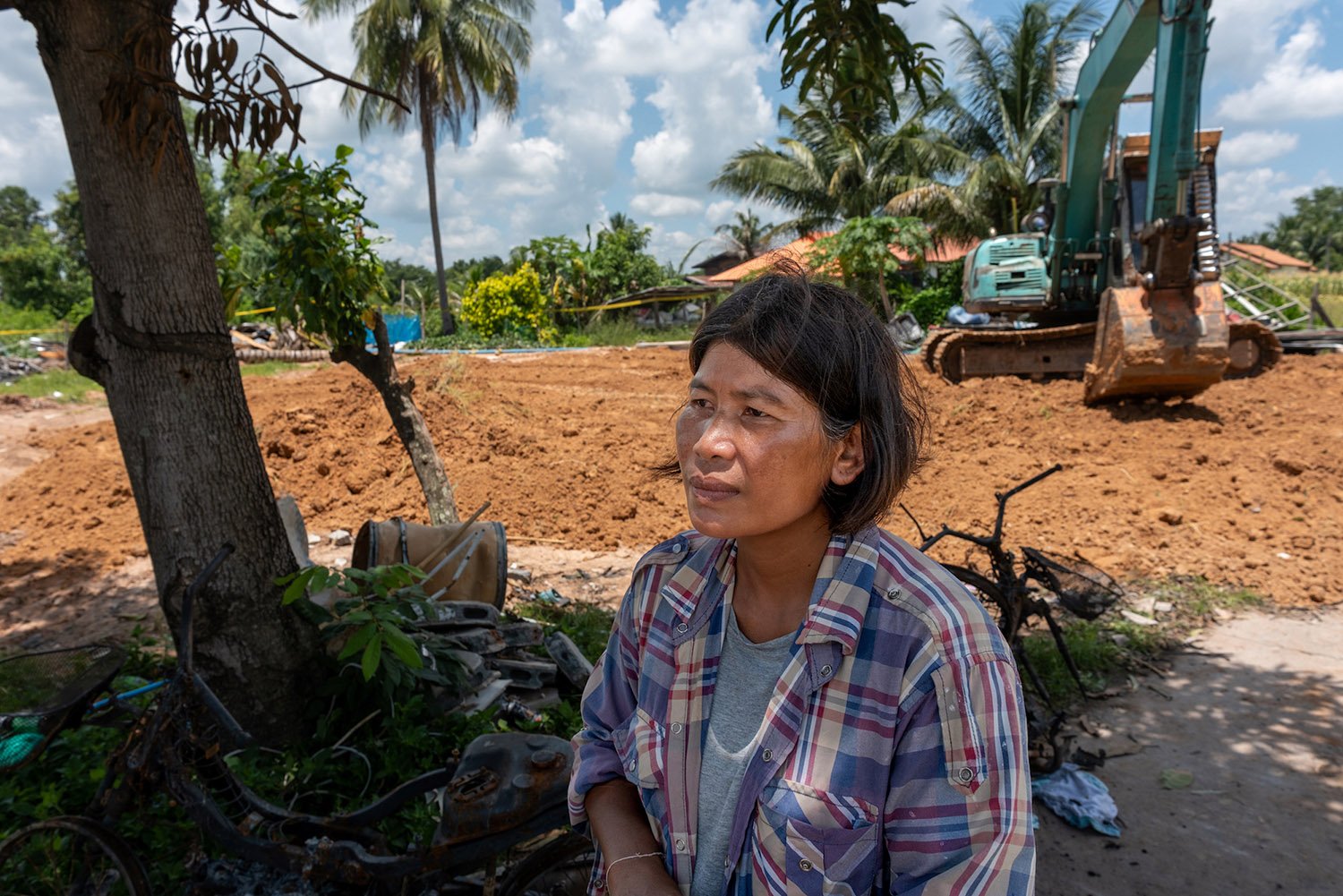
“I don’t really trust the situation will be final. I especially don’t trust the Cambodian government—they could start firing again at any time,” Suwannee said.
Bee, the health official, acknowledged that similar scenes were playing out on the other side of the border. “We know people in Cambodia are really struggling, too. We feel really bad for their civilians,” she said.
What comes next is hard to predict. The last time clashes broke out on the Thai-Cambodian border in 2008, fighting continued on and off for three years. The recent cease-fire came about in part because U.S. President Donald Trump used tariff threats as leverage; high tensions mean that a return to conflict is possible. But both governments may prefer to consolidate their domestic gains while continuing to use the other side as a bogeyman.
The post The Battle of Narratives on the Thai-Cambodian Border appeared first on Foreign Policy.




